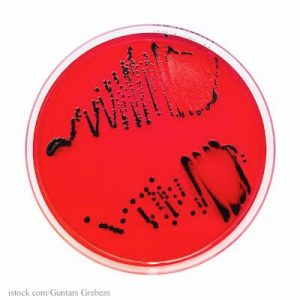On the heels of a multi-state Salmonella outbreak linked to peanut butter, Joseph Frank, a food scientist at the University of Georgia, has been awarded a $499,998 grant from the U.S. Department of Agriculture (USDA), to study risks associated with Salmonella in dry and ready-to-eat foods, such as peanut butter.
 The study is one of 17 research projects funded by USDA’s National Institute of Food and Agriculture. The projects have the shared goal of improving food safety by controlling contamination.
The study is one of 17 research projects funded by USDA’s National Institute of Food and Agriculture. The projects have the shared goal of improving food safety by controlling contamination.
Salmonella causes more than 1 million cases of foodborne illness in the US each year, according to estimates by the Centers for Disease Control and Prevention (CDC). Symptoms of salmonellosis, the infection caused by Salmonella poisoning, include fever, abdominal cramping and bloody diarrhea which usually set in 12 to 72 hours after exposure and last three to seven days.
Poultry, eggs, and unpasteurized juices are among the common sources of salmonellosis. Cooking and pasteurization kill Salmonella in those foods but not in dry and ready-to-eat foods such as peanut butter.
“When Salmonella gets in these foods, it isn’t able to grow up but it doesn’t die every quickly. It tends to survive for very lengthy periods of time,” Frank said. “These are ready-to-eat foods, and they are shelf stable foods,” he said. “ So they don’t spoil, but the Salmonella can be in there and can survive for many months. Then whoever eats that food is at risk.”
With the USDA grant, Frank will study how the chemical makeup of certain ready-to-at foods affects the survival of Salmonella. “We don’t understand why it dies faster in some foods than others,” he said. “We plan to look at the characteristics of these dry foods and try to predict the survival of Salmonella in these foods.”The goal of the research is to develop a risk assessment mode for Salmonella survival in ready-to-eat foods. “In the end, we will have a tool that will allow the industry to assign a risk number on food products. Like, one person in every million will fall ill from eating the product.”




